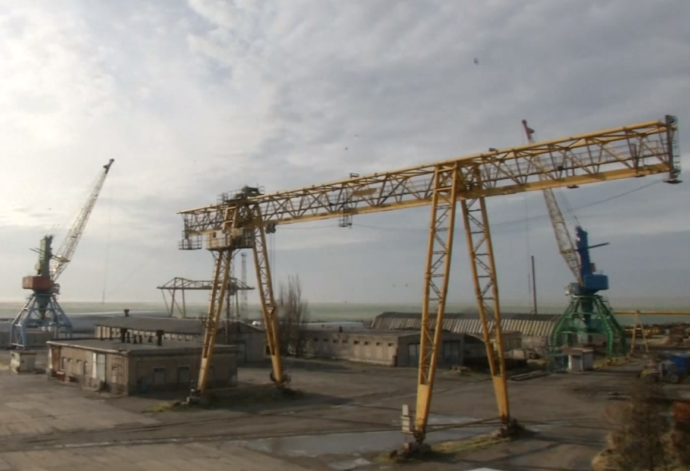At a container terminal in Berdyansk for example, operations are practically suspended. Trailers packed with 5,500 tones of wheat destined for Libya are parked up, as shipping company executives struggle to deal with Russia’s suffocation of Ukraine’s southeastern commercial ports.
Workers are waiting for the cargo ship Island Bay from Beirut, which was forced to anchor at the gateway to the Azov Sea earlier this week. It sailed into a perfect storm of geopolitics and adverse weather.
One shipping company chief says the delays for vessels cost him $2,000-$2,500 every day.
“For us, this was the worst week of recent years. We never had such an element of risk as these inspections and it is absolutely unclear what we should do with this. There have been no letters from the Russian side about what they are doing, why they are doing it, what all this is about, how long all this will continue, and what we might expect in the nearest future,” Denis Rusin, chief executive of the shipping company said.
This uncertainty is felt across Berdyansk and beyond. The saga of Island Bay gives just one indication of how much leverage Moscow has over Ukraine’s Azov seaboard.
“Clients have stopped considering the possibility of signing contracts for delivery in January, let alone February or spring. As for December, execution of the delivery contracts for December is now open to question,” Rusin said.
There are fears that Russia’s blockade could mean international ship owners and brokers to look to use other ports on the Black Sea.













